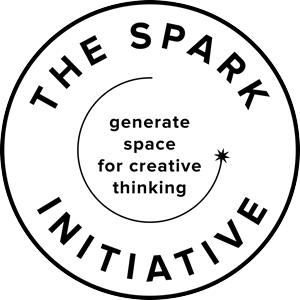SO WHAT EXACTLY IS COACHING?
coaching transports people from where they are, to where they want to be.
GET IN TOUCHEXECUTIVE COACHING
By investing time and energy into creative thinking it’s possible to shift perceptions, demolish assumptions and generate new ideas and plans.
How does coaching help this process? We all know how important it is to have ‘someone to bounce ideas off’, but imagine you could talk uninterrupted, in a space where you’re not in competition with others. Somewhere where no one is going to shoot you down in flames or try and compete with you for the best idea; where the attention is on you, and your thoughts; where you have space to explore your creativity; where you have a voice. That is what a good coaching session provides.
At the root of Executive Coaching is the GROW model* developed by Sir John Whitmore the pioneer of the Executive Coaching Industry.
GROW stands for:
Goal
Reality
Options
Will
Which frankly sounds like common sense.
WHY WOULD YOU NEED A COACH?
Why would you need a coach to work this through? A coach brings the quality of attention that helps generate creative thought. A good coach will challenge long-held assumptions, question beliefs and help to release the first-class ideas buried within us all.
To quote from the Co-Active Coaching Model** ‘The client is naturally creative, resourceful and whole’.
The client has all the answers or knows where to find them. The coach is the catalyst, helping the client develop belief in her own abilities, building confidence and self-reliance, so by the end of a series of sessions, problems are solved and faith in oneself has grown.
Whether the need is for performance coaching, skills coaching, development coaching, or helping set an executive agenda, The Spark Initiative can help.
Performance Coaching:
This type of coaching is solutions-based, setting clear goals and focusing on what the coachee is already doing and how to do it better.
Skills Coaching:
Here the spotlight is on a specific skill requirement, for example, presentation skills or people management.
Development Coaching:
Focusing on the person to discover who the coachee really is and uncovering the beliefs and attitudes that support or prevent progress.
Executive’s Agenda:
This addresses
the wider perspective of leadership itself and the identity of the coachee in an executive role.
* COACHING FOR PERFORMANCE by John Whitmore
** CO-ACTIVE COACHING by Henry Kimsey-House, Karen Kimsey-House
and Phillip Sandahal.
COACHING vs. MENTORING
What’s the difference between coaching and mentoring?
Coaching and mentoring are often used interchangeably as they share some common features. Both take place on a one-to-one basis and both focus on helping a person develop more knowledge and skills. Both involve a quality of attention from the coach/mentor to explore issues, aims and short or long-term objectives and both focus on professional growth, career developments and the possibility for achievement. However, there are key differences:
Coaches
do not need to have first-hand experience of the coachee’s line of work. Coaches are independent external professionals with coaching accreditations.
Mentoring
is a planned pairing of a more skilled or experienced person (usually in the same field of work) with a less experienced person.
Coaches
will ask incisive questions, challenging the coachee, but not offer advice.
Mentors
will often provide direction and advice within an organisation.
Effective coaching
is designed to help you to become self-reliant rather than by ‘teaching’ you.
Mentors
can provide a neutral sounding board within an organisation.
By engaging with an experienced coach, the Coach
will develop insights leading to enhanced effectiveness.
Mentoring
often involves drawing on the expertise and experience of the mentor in the process.
Coaching
is restricted to an agreed number of sessions.
Mentoring
is ongoing and can continue for a number of years.
HOW MUCH DOES COACHING REALLY BENEFIT A BUSINESS?
Coaching is great for the individual but why should a corporation invest in it?
With the increasing use of technology in all aspects of our lives, many industries are in a state of flux. Leadership today is volatile, uncertain, complex and ambiguous.
There are disrupters in all sectors from the glaringly obvious such as media and retail to the less obvious, such as tax advisory services and the law.
Old certainties are being tested and long-established companies are frantically trying to adapt
to new ways of working and thinking and while many people see change as an opportunity, others worry for their future.
Coaching can help individuals to rise to this challenge. To quote Susan Jeffers' seminal book, they can Feel The Fear and Do It Anyway.
It gives them a chance to voice ideas, examine them from all angles and then present the best ones for your business.
All this in the safe confidential space that is a coaching session.
Coaching can help to dismantle assumptions that have been embedded in a business for years,
creating flexibility and a new way of thinking which is vital in today’s world, let alone tomorrow’s.
COACHING CAN HELP CREATE A DIVERSE WORKPLACE
“Increasing diversity isn’t a political correctness exercise, it’s a progression that can future-proof business and create competitive advantage." (McKinsey - delivering through diversity report, Jan 2018)
Women now account for 47% of the UK workforce, but only 22% of senior leadership positions. Fewer than one in ten UK management roles are held by someone from a black, Asian and minority ethnic group. Creating a workplace that reflects the backgrounds and experiences of all groups can bring rich rewards. Acknowledging differing ways of working, and weaving them into the fabric of a company, helps create competitive advantage. But this requires that everyone has the confidence to voice opinions, and the self-belief that leads to change in working practices.
Coaching can play a leading role in dispelling unconscious bias, widening perception, and encouraging all people to work well together.


